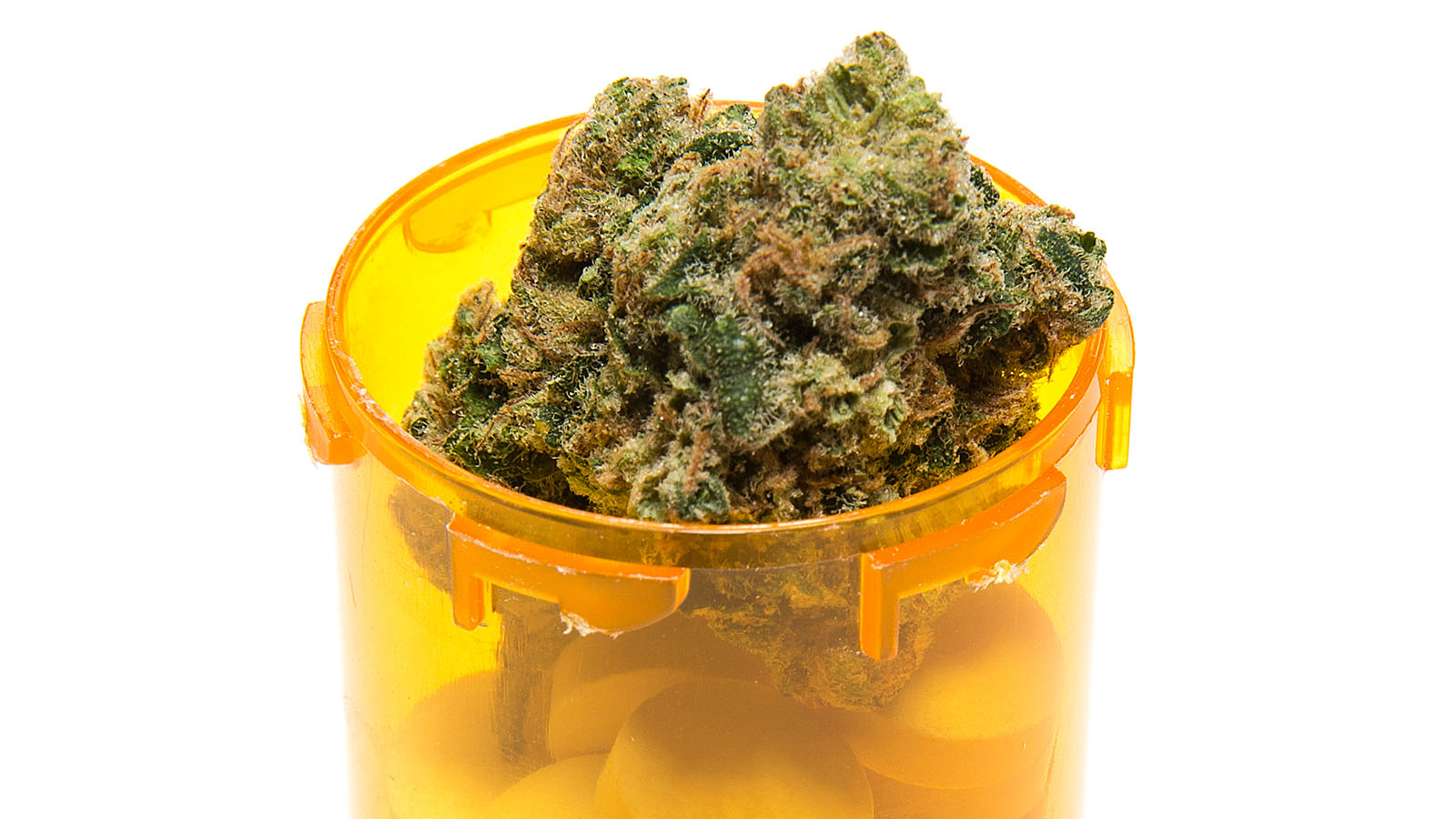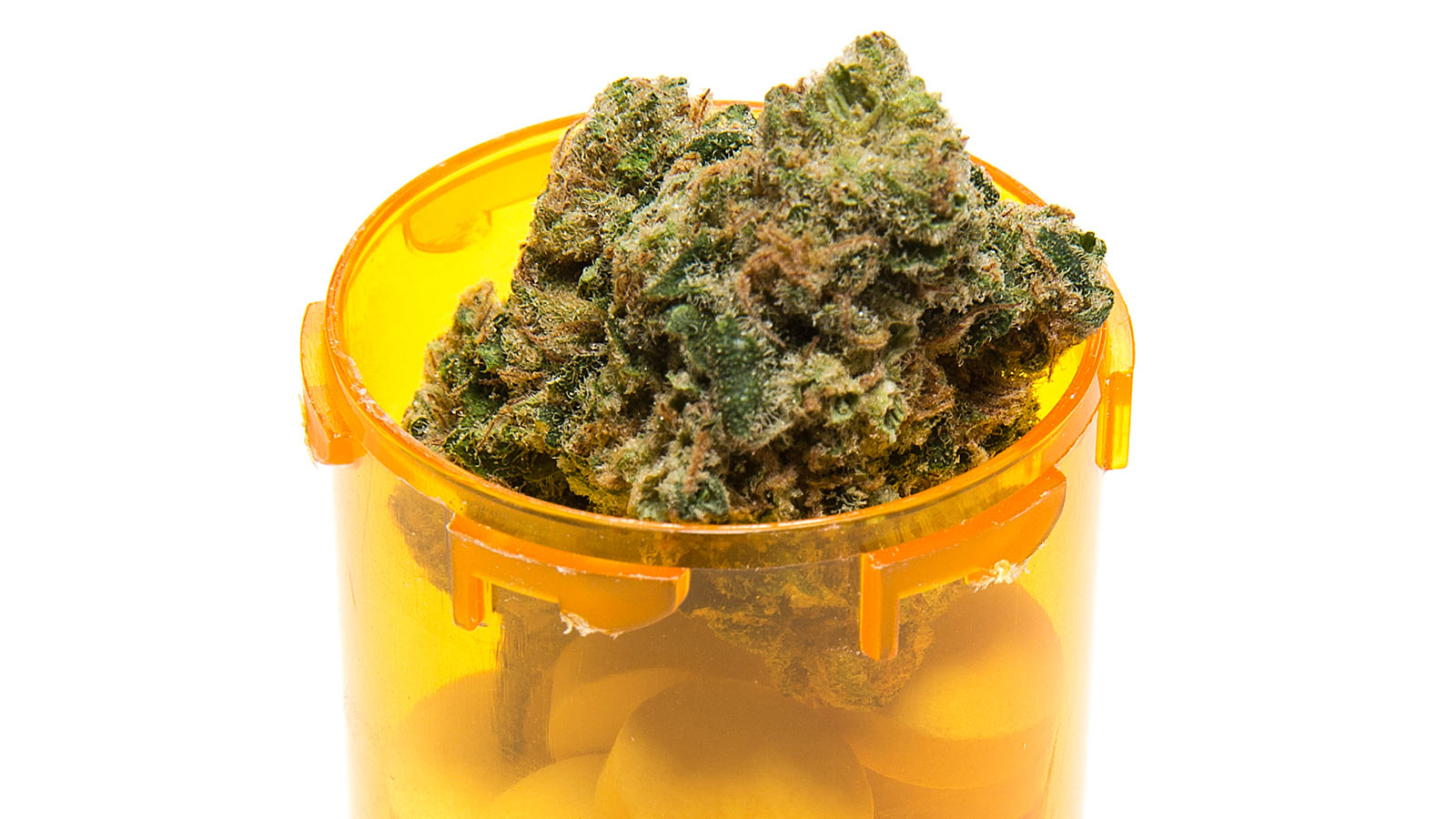
Tom Utley had been taking the prescription painkiller OxyContin for seven years before Illinois legalized medical marijuana in 2015.
“I was nodding out in the middle of conversations and felt like a passenger in my own body,” said Utley, whose earlier spinal cord injury returned in 2008, causing excruciating pain and difficulty walking.
But Utley, 42, a Kilbourne, Illinois, tumbling instructor, said the numerous side effects of the opioid, which include addiction, severe constipation and body chills, caused as many problems as his chronic pain. A physician prescribed medical cannabis and Utley said that changed everything.
“I’m in control of my life for the first time in a decade with no side effects,” he told Weedmaps News.
Illinois legislators in 2017 created one of the U.S.’s first programs to allow patients currently taking opioids for pain to legally substitute medical marijuana. On Feb. 1, 2019, patients were allowed to register for the Illinois Opioid Alternative Pilot Program.
“Opening access to patients in pain who are taking opioids will help so many people. Giving them an alternative is like throwing them a life preserver,” Utley said.
More than 15,500 Illinois residents overdosed on prescription or illicit opioids in 2017 — with 2,202 suffering fatal overdoses, according to a new report by the Illinois Department of Public Health (IDPH), a 13 percent increase over 2016, when 1,946 fatal overdoses were recorded.
Patients registering for the opioid alternative program require a physician’s certification that they are already taking or could take an opioid for pain, and do not have one of the 40 conditions currently qualifying for registration in the Illinois medical marijuana program.
Democratic Illinois state Rep. Kelly Cassidy said the earlier law legalizing medical marijuana did not include a qualification for pain.
“I spent time a lot of time with patients struggling with the challenges they faced in controlling their pain and saw firsthand the growing opioid crisis and said we needed to create short term access so those patients could have an alternative to opioids that isn’t terrifying or addictive,” Cassidy told Weedmaps News. “So we sat down with all involved state agencies and advocacy organizations and created this path. We think it’s one of the first in the country and other states are looking into it.”
Cassidy said the measure of its success will be in a drop in Illinois opioid use.
This program allows people to avoid overdoses and addiction, letting them live more functional, pain-free lives. Click To Tweet
“This program allows people to avoid overdoses and addiction, letting them live more functional, pain-free lives.”
Dr. Mauricio Consalter, a Chicago internal medicine specialist, said the program is invaluable.
“It’s been very challenging for patients with a history of pain, because the opioids have strong side effects, including addiction. With cannabis, you can’t really overdose and the side effects are minimal,” Consalter told Weedmaps News. “From my experience, 40 percent to 60 percent of patients taking opioids will stop taking them after using medical marijuana. It is a very valuable tool to treat pain and fight opioid addiction.”
Paul Lee, general manager of Chicago’s Dispensary 33, a medical marijuana retail store, said the opioid pilot patients can go online and obtain a provisional registration number and purchase cannabis without waiting months. Lee said “that’s a game changer” that opens access to hundreds of thousands of Illinois residents previously unable to qualify for medical cannabis.
“We’ve learned from the data that opioid addiction can occur after only a few weeks of prescribed use,” he said. “This is likely to save hundreds of lives a year in Illinois alone.”
Mark Peysakhovich, a lobbyist and consultant for the Illinois medical cannabis firm HCI Alternatives, said the pilot program gives hope to people seeking an alternative to opioids.
“This is a lifeline to people in pain,” Peysakhovich said. “Millions of doses of opioids are prescribed in Illinois every year and we know there are many unwilling and unhappy opioid users desperately seeking alternatives that could help them ramp down opioid use. There are thousands of Illinoisans with permanent, intractable lifetime pain who will benefit from this program.”
Peysakhovich said because pain was not a qualifying condition for medical marijuana, patient numbers in Illinois have remained small: 52,000 from a state population of 12.8 million.
“And one reason the cannabis industry in Illinois is not particularly profitable is the anemic patient count,” he said.
Peysakhovich predicted that the opioid alternative program could quadruple the number of patients currently enrolled in the Illinois medical marijuana plan to 200,000.
“We believe within a year we will see explosive growth in the medical marijuana market, not just in the number of patients served, but in the income and value of marijuana-related businesses,” he said. This opioid alternative program portends an entirely new and different age for medical cannabis in Illinois.”
Conny Mueller-Moody, director of the Illinois Medical Cannabis Pilot Program and the Illinois Opioid Alternative Pilot Program for IDPH and the deputy director of its Office of Health Promotion and Medical Cannabis, said the state has trained county public health offices and dispensaries to assist patient registration. Patients already enrolled in the medical cannabis program are prohibited from enrolling in the opioid pilot.
“Patients enrolled in the opioid alternative are required to re-register every three months, which means they require physician certification and must pay a $10 payment every 90 days to continue,” Mueller-Moody told Weedmaps News. “We’re convinced this will provide a treatment alternative with the long-term goal of reducing opioid deaths.”















